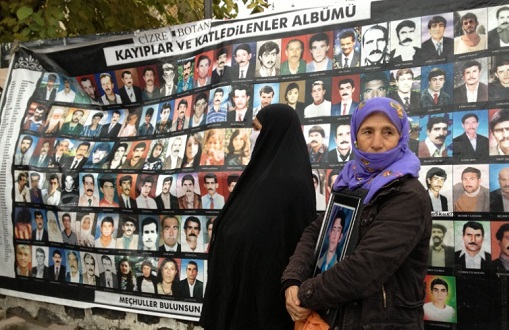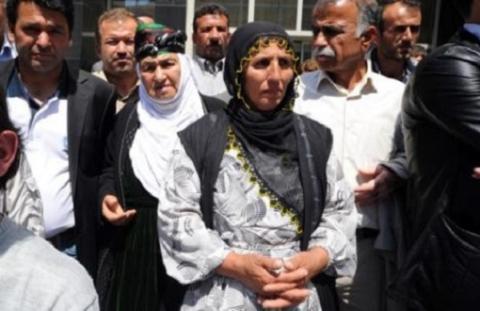
Kamil Atağ, former Head of the Village Guard, is released
In Diyarbakır, the trial continued against 6 suspects—including former Kayseri Gendarme Regimental Commander Colonel Cemal Temizöz and former Mayor of Cizre and Head of the Village Guard Kamil Atağ—who are being held responsible for the unresolved murders and disappearances carried out in the Cizre district of Şırnak between 1993 and 1995. The court released Kamil Atağ. Atağ’s release was celebrated in Cizre yesterday evening with gunfire. The relatives of the victims are anxious.
The arrested suspects, retired Colonel Cemal Temizöz, Kamil Atağ, Tamer Atağ, Hıdır Altuğ, Fırat Altın, and Adem Yalkın, were all present at the hearing, which took place at Diyarbakır’s 6th Criminal Court. The Head of the Village Guard Kamil Atağ, whose punishment for seven counts of murder would have been a life sentence to prison, was released. Atağ’s supporters in Cizre celebrated his release by gunfire that night. The release of Atağ, who has been in custody for 4 years, was met with sadness by the relatives of the victims of the unresolved murders and disappearances. His release caused doubt on the part of the victims about the occurrence of justice as well as the court’s proceedings. This development in the Temizöz case, which is one of a very small number of cases related to JİTEM, has created an air of hopelessness concerning the judgment of JİTEM actions and organization.
Requested punishment
According to the 104 page indictment by the Diyarbakır Chief Public Prosecutor, the suspects are wanted for crimes such as “killing another person,” “establishing a criminal organization for the purposes of committing a crime,” and “instigating the killing of another person.” The punishments being demanded for the suspects range from 9 life sentences for Cemal Temizöz, 7 for Kamil Atağ, 2 for Tamer Atağ, 7 for Adem Yakin, 3 for Hıdır Altuğ, 6 for Fırat Altın, and 1 for Kukel Atağ. The indictment, which alleges that in Cizre in 1993 Temizöz “created a group of village guards, confessors, and specialized sergeants who, during the course of the group’s work, departed from their official duties and interrogated people who were deemed to be helping the PKK terrorist organization or who were arrested for undisclosed reasons” under the spectre of “fighting against terror,” propounds that the group killed many of those who were interrogated.



